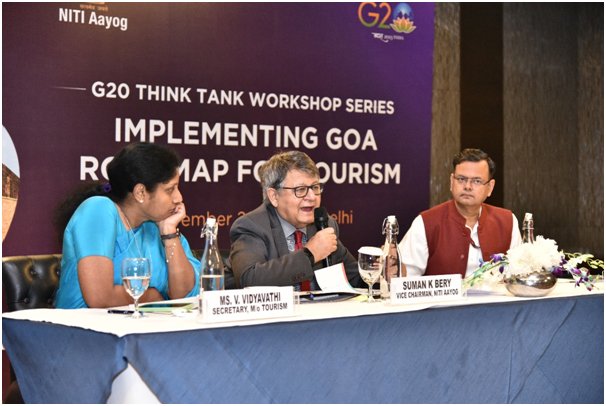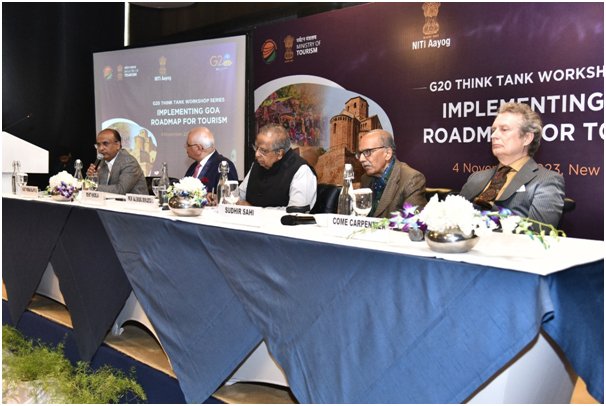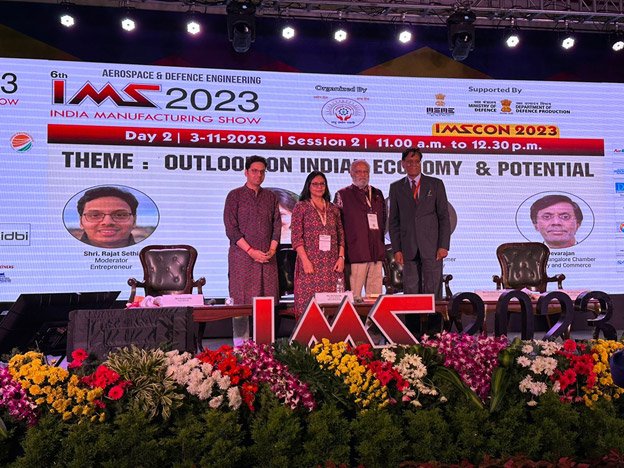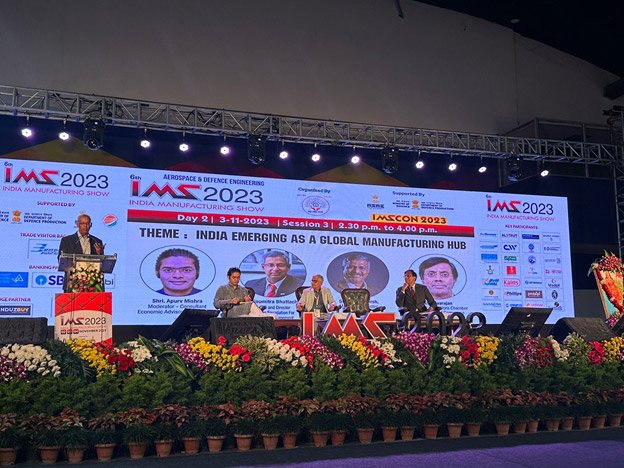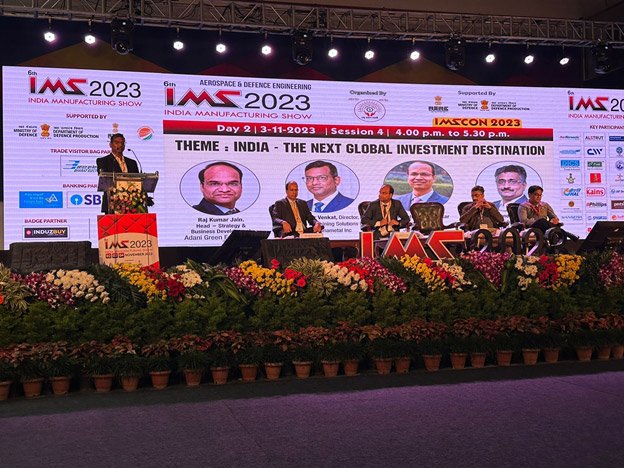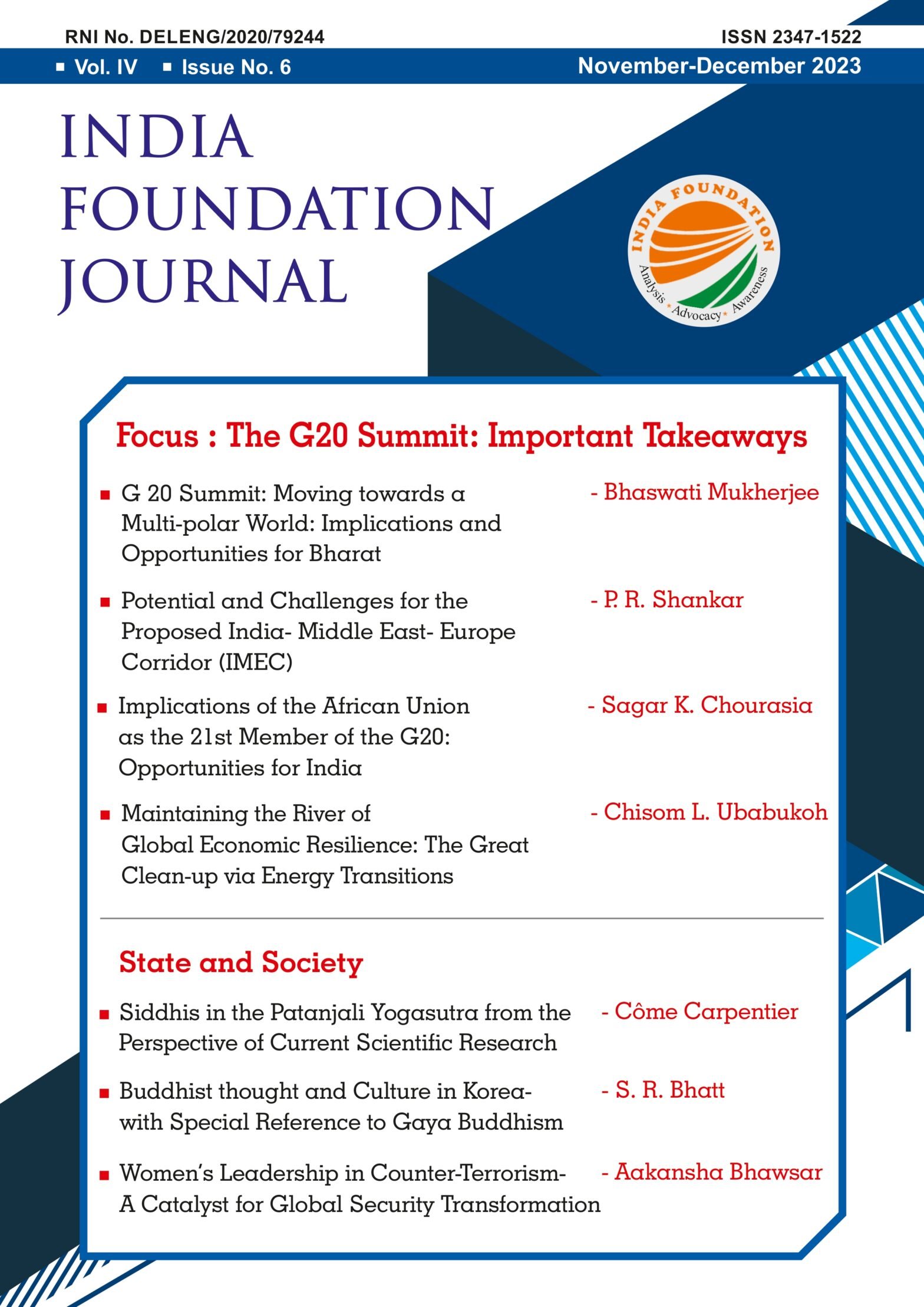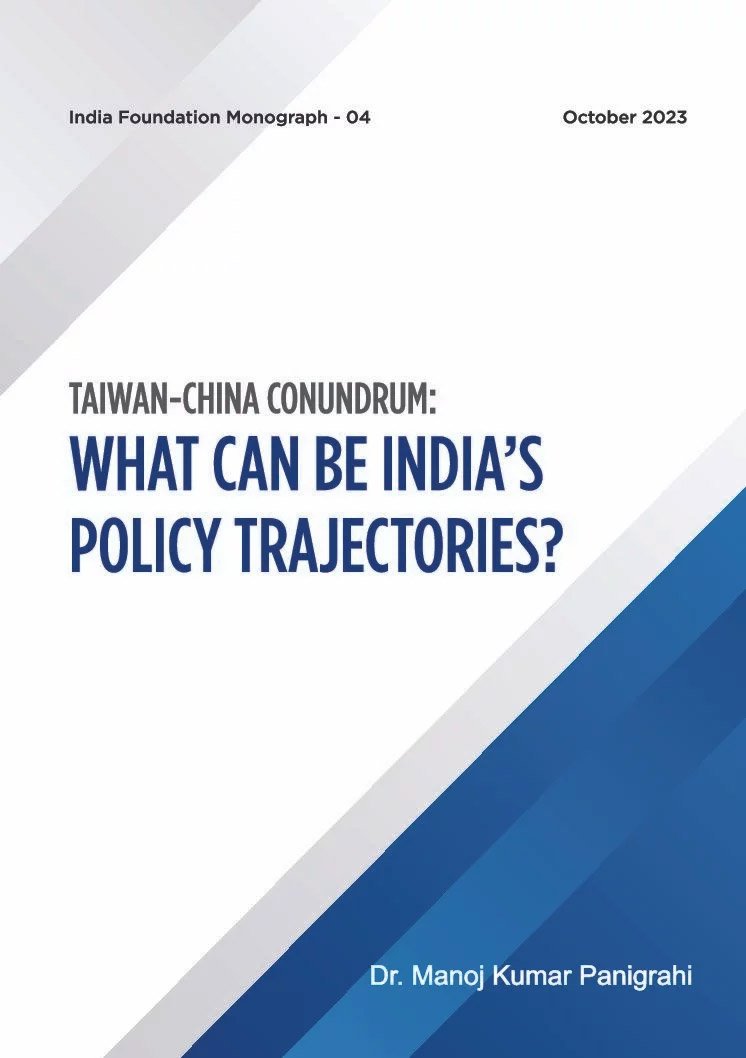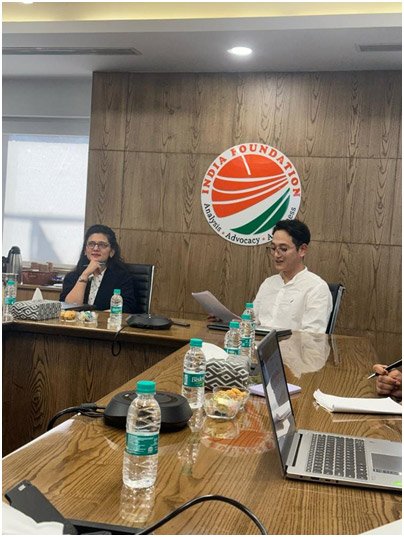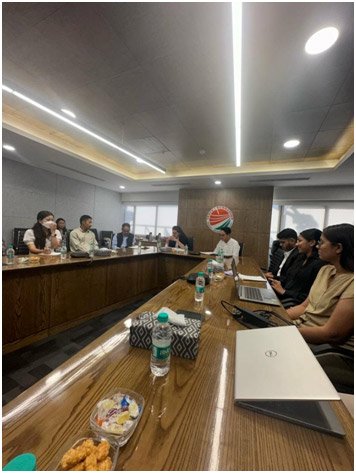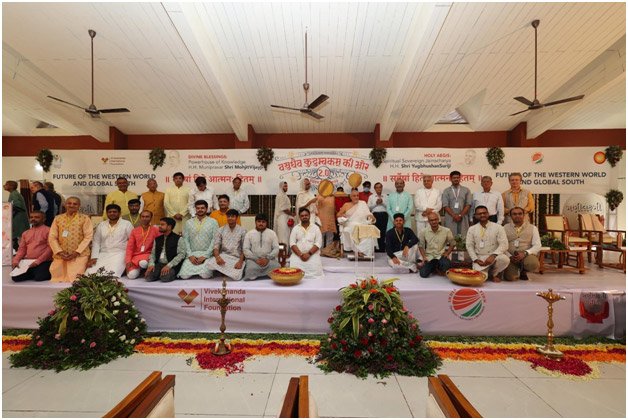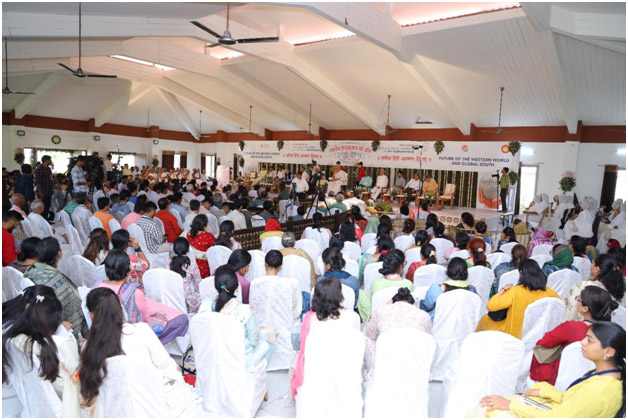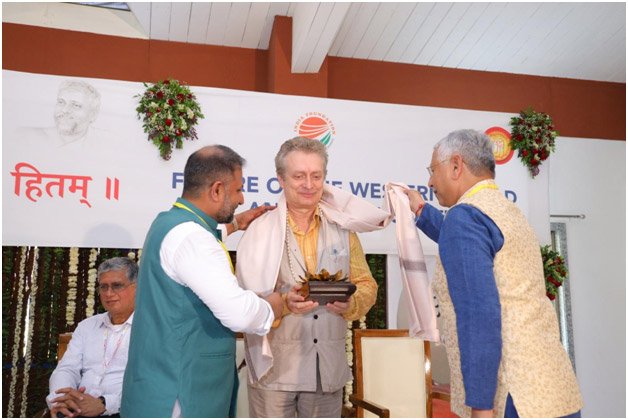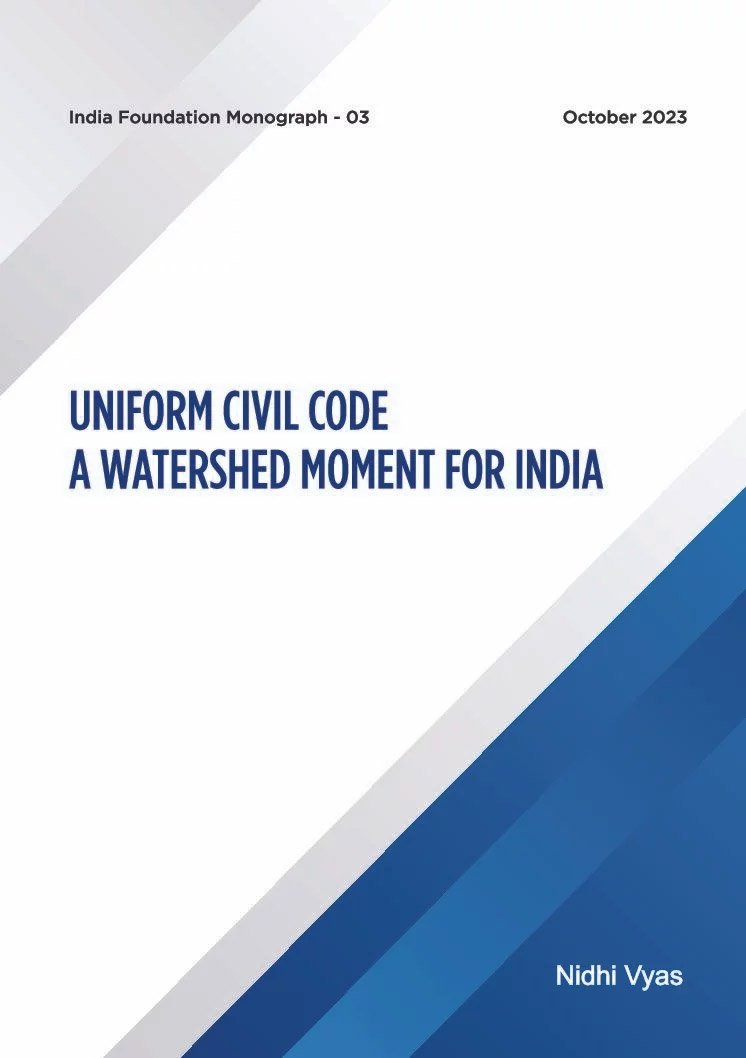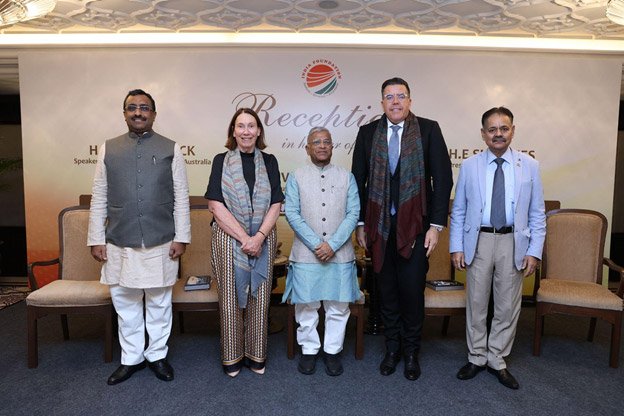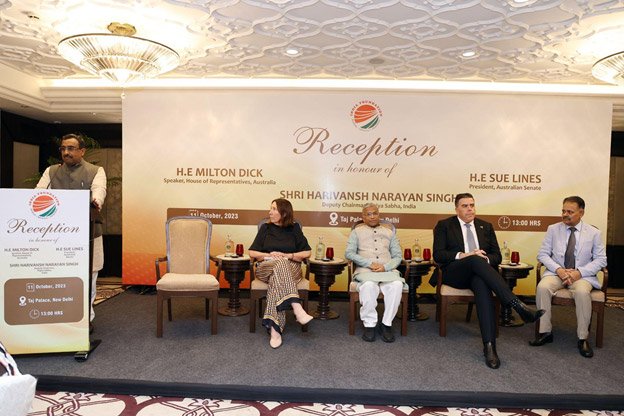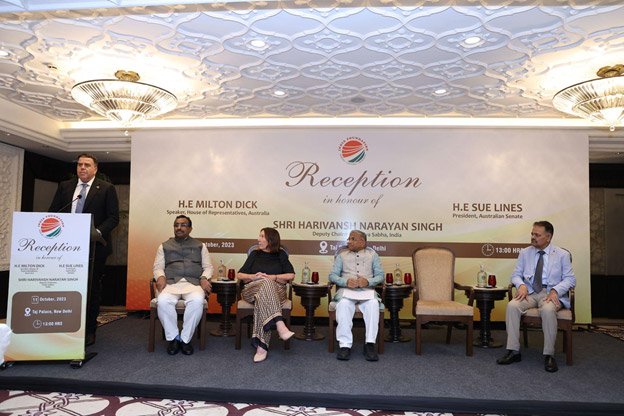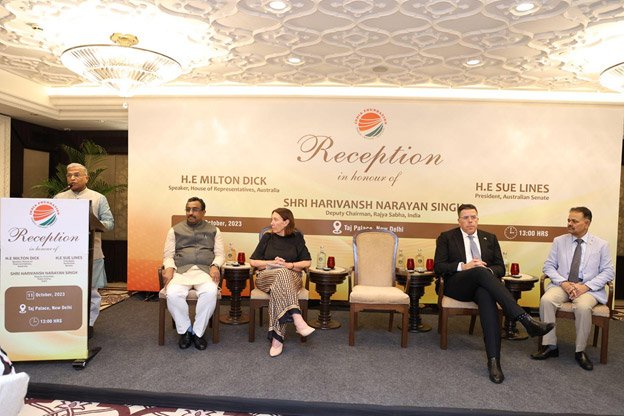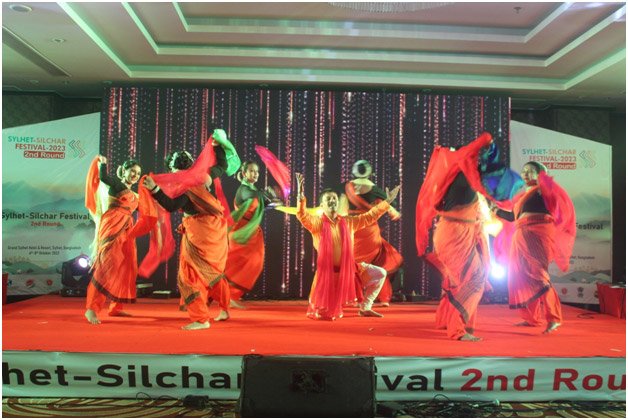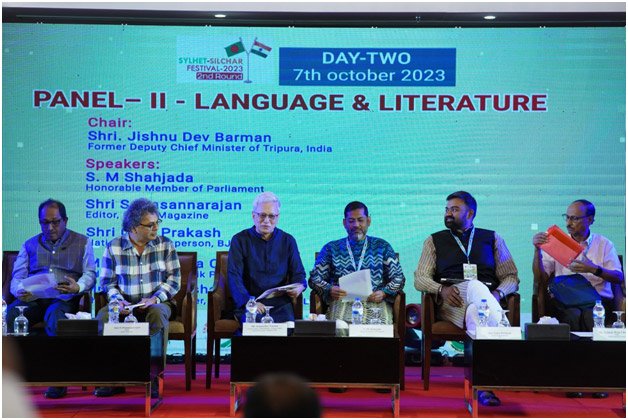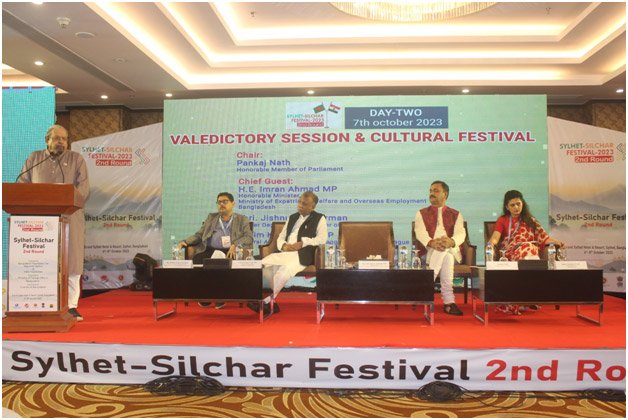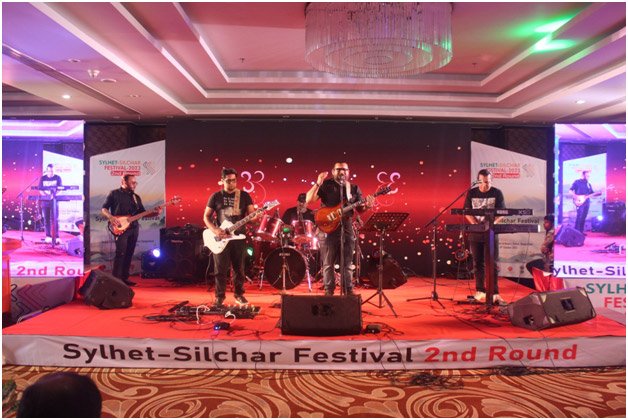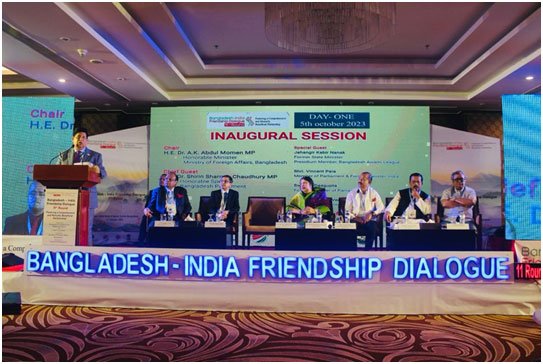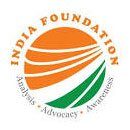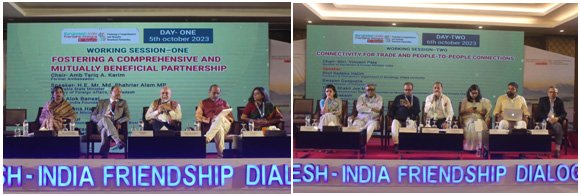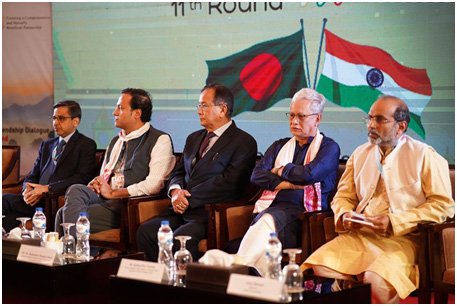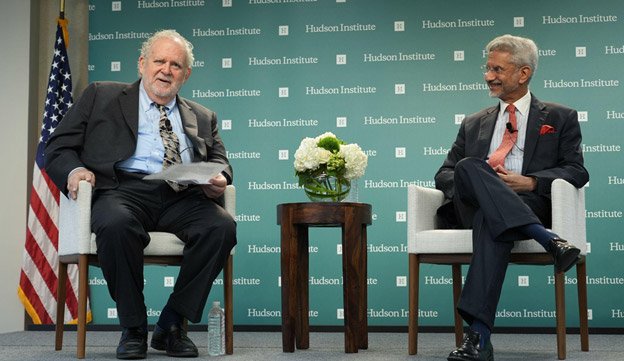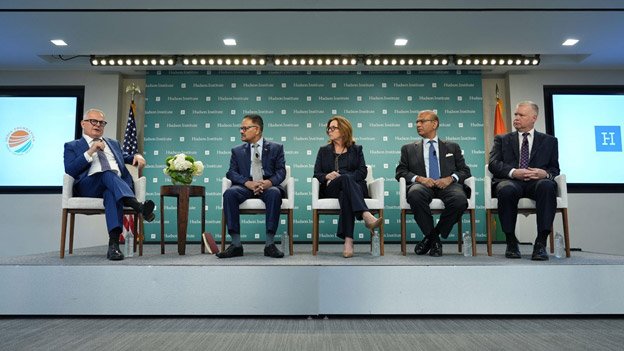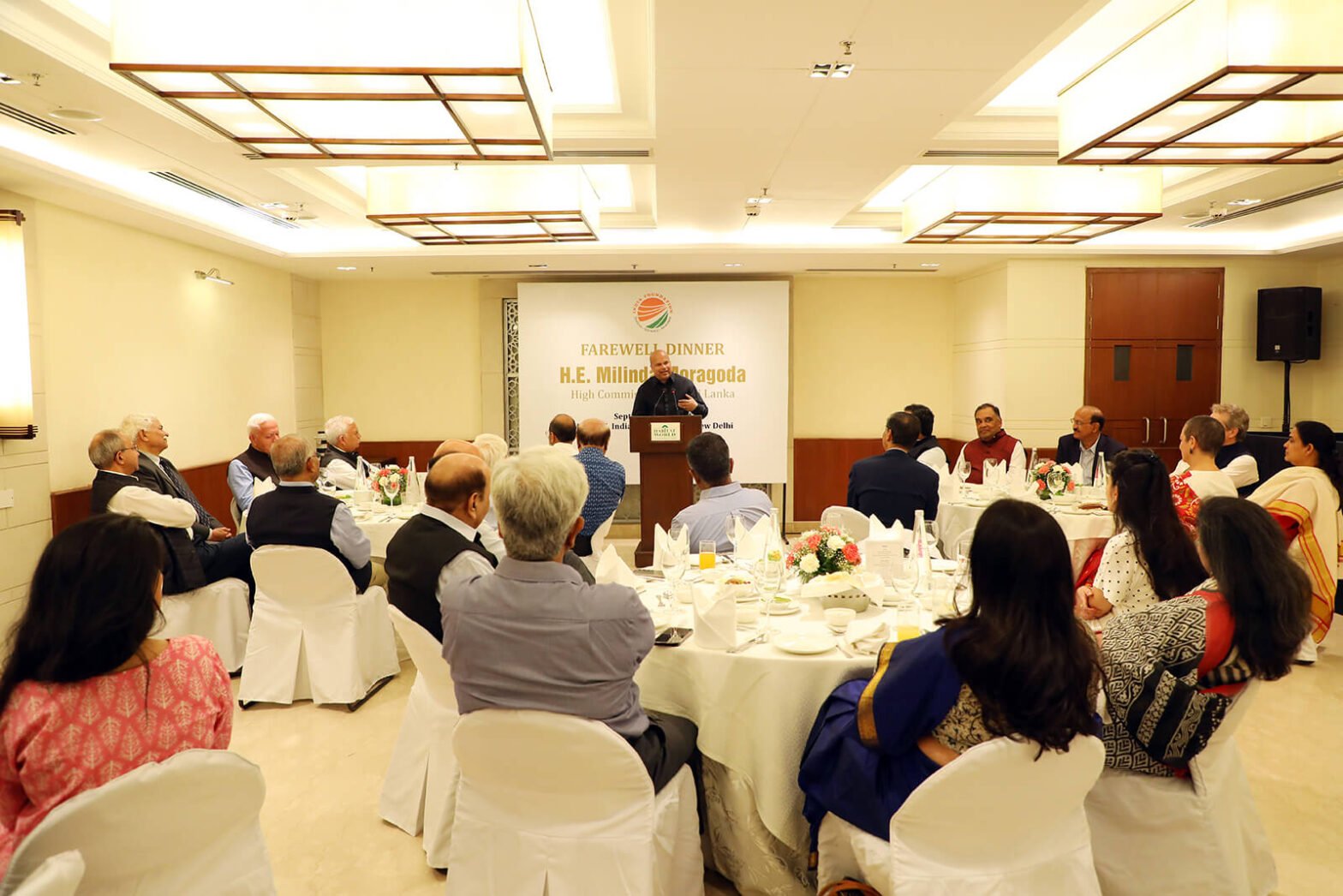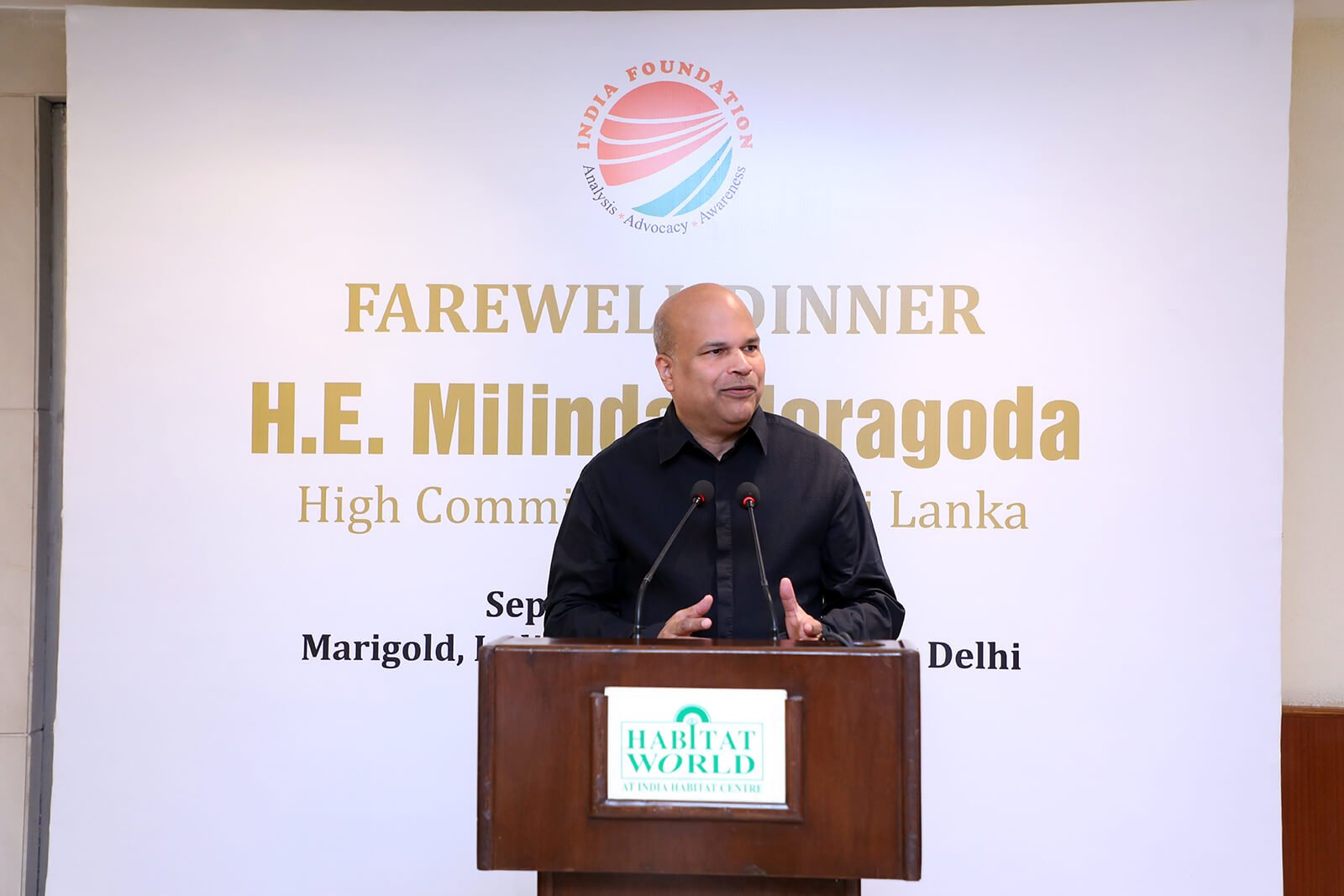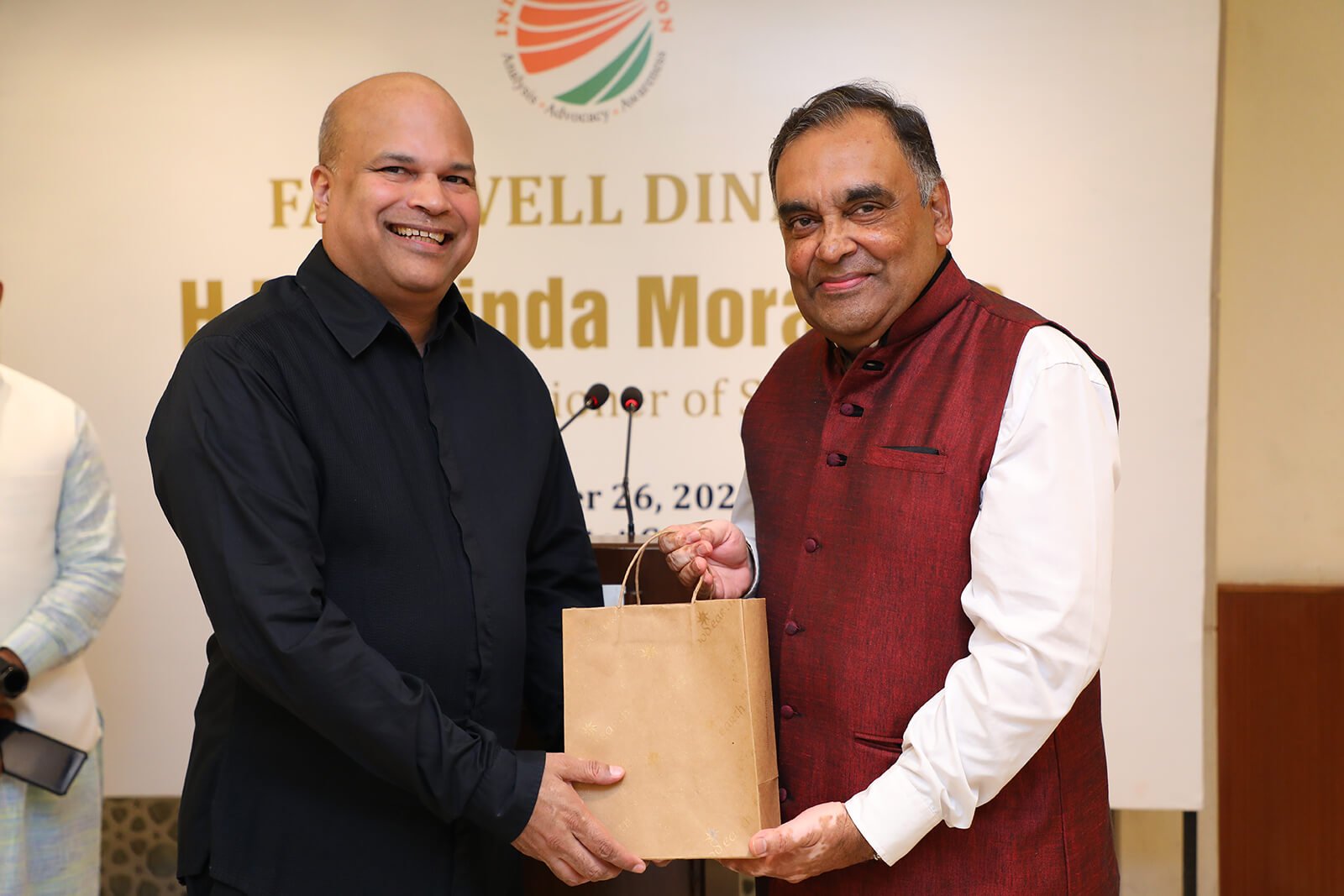‘Ayang nijangparovati, Ganana laghu chetasam,
Udarcharitana tu, vasudaivakutumbakam’,
(‘This is mine, this is yours, This thinking is for the narrow minded.
It is only for the generous hearted that the earth is one family’.)
India that is Bharat’s G 20 message, flowing from the Maha Upanishads, resonates in today’s conflicted and divided world: Coinciding with the beginning of ‘Amritkaal’ or the next 25 years after the 75th anniversary of India’s independence, the motto underlined that the presidency would be both futuristic and inclusive.
The G 20 represents an emerging order far more representative than a bitterly divided Security Council. It brings the G7 together with other major economies as equal partners. The G20 has evolved over time into one of the most powerful economic and financial groupings. At present, it comprises 85% of global GDP, 75% of international trade and two/thirds of the global population.
India hosted the G 20 Summit on 9th and 10th September 2023 in New Delhi. On 1st December 23, India will formally hand over the presidency to Brazil. A virtual Summit is planned under India’s Presidency on November 23 to review the resolutions and recommendations from the Summit.
Our Presidency ensured that India’s perspective on issues of vital national importance was duly incorporated in the global financial narrative. At the same time, under PM Modi’s inspiring leadership, India became the voice of the Global South within the G 20. It was our consistent position that the core mandate of the G 20 was to promote economic growth and development. Therefore, the crucial concerns of the Global South needed to be addressed. There was a strong compulsion to create more resilient and reliable supply chains.
As the G 20 President, India identified, highlighted, developed and strengthened international support for priorities of vital importance for the Global South in diverse social and economic sectors, ranging from energy, agriculture, trade, digital economy, health and environment, to employment, tourism, anti-corruption and women’s empowerment. In the discussions among G 20 partners leading up to the Summit, India thus represented the voice of the Global South.
India argued that a more just, equitable and participative global order can only be achieved with investment, trade and technology decisions directed at the Global South. India ensured that the African Union would have a permanent seat at the table at the Summit.
It is clear that India was not just at the High Table but actually shaping concerns of the Global South and finding ways to address them in specific ways, not in opposition to the West but in conjunction with the West. This was also in line with EAM Dr. S. Jaishankar making a strong pitch at the B-20 Summit, organised by the CII, preceding the G 20 Summitfor “a more diversified and more democratic” re-globalisation.
We took over the Presidency at a challenging and watershed moment coinciding with a period of flux internationally. The Russia Ukraine conflict vitiated relations between Russia and the industrialised West, most of which are members of the G 20. The conflict and the resulting unilateral sanctions imposed by the West upset the post pandemic global recovery and raised oil and gas prices as well as food availability. As always, the impact has been felt by the Global South, traditionally the most vulnerable.
Soon after the Summit, the international scenario became more complicated. Canadian PM Justin Trudeau’s ridiculous allegations against India in the Canadian Parliament, followed by efforts to persuade friendly Western Governments and India’s strategic partners, notably the USA, to take positions, resulted in Indian diplomacy confronting its most serious challenge in recent times. India not only clarified its stance in public, but also found a ‘modus vivendi’ around the issue with American policy makers in public.
On October 7th, 23, Hamas carried out a surprise attack on Israel on an unprecedented scale, firing thousands of rockets, infiltrating militants into Israeli territory and taking an unknown number of hostages. It was almost 50 years to the day after the surprise Arab attack on Israel that launched the so called Yom Kippur War in 1973. Israel’s PM Benjamin Netanyahu declared that Israel was “at war”. It dealt a huge blow to the on-going process of the Arab world coming to terms with Israel including a possible peace deal between Israel and Saudi Arabia.
It also cast a long shadow on the much-hyped India-Middle East-Europe Economic Corridor announced on the last day of the G 20 Summit. The corridor would promote economic development and inter-regional connectivity and would become a viable American counter to the failed Chinese BRI. The MOU has mapped out the potential geography of the corridor from India to Europe, through UAE, Saudi Arabia, Jordan, Israel and Greece. Clearly, there are some countries who wish to sabotage the corridor.
Before and during the Summit, India sought to find pragmatic global solutions for these challenges. In doing so, India utilised its soft power in good measure. Her soft power, as disseminated through her inclusive cultural and civilisation heritage across millennia, has demonstrated that her values of tolerance, inclusiveness and cross fertilisation of cultures are more important than ever before in today’s troubled world. India used the G 20 Presidency to make culture the force to connect, to build relations and to heal the ruptures created by history and politics.
In the weeks leading up to the Summit, anddespite meticulous preparation, India’s main challenge was the Ukraine-Russia conflict being a possible spoiler. How big a challenge was the elusive consensus on the Russia Ukraine conflict?
President Putin personally informed PM Modi that he would be represented by his Foreign Minister Lavrov. The other important leaders, including President Biden, confirmed their participation. China’s Xi Jinping did not attend and was represented by the Foreign Minister. The absence of consensus on a paragraph in the Summit document on the seemingly intractable Russia Ukraine conflict remained a real concern in the run-up to the Summit.
Against all odds, the presidency succeeded in obtaining agreement on an issue which has till today eluded consensus in the Security Council. The success of the Summit and the adoption of the New Delhi Declaration by consensus confirmed, if such confirmation was required, of India’s emergence as a major player on the global stage, with the ability to adjust and reconcile seemingly intractable issues, being acceptable as a negotiator to all sides.
India’s Sherpa Amitabh Kant said: “When we started the Presidency, the PM said that India’s Presidency should be inclusive, decisive and action –oriented. The Declaration has 83 paragraphs, and all have 100% consensus”. On the Ukraine issue, the Indian Presidency, in a balancing act, interwoven with remarkable drafting and negotiating skills, demonstrated that the Indian Foreign Service had come of age.
The section on geopolitics has 8 paras, compared to 2 on ‘Ukraine’ in Bali, and is titled ‘For the planet, peace and prosperity’. It begins by recognising the ‘immense human suffering and the adverse impact of wars and conflicts around the world’. It then specifically mentions Ukraine, recalls the Bali discussions, and refers to the UN resolutions on the issue. It stresses that all States must abide by the UN Charter and adds ‘All States must refrain from the threat or use of force to seek territorial acquisition against the territorial integrity and sovereignty or political independence of any State’. This is an important face saver but is balanced by the next line which speaks of the unacceptability of the use or threat of nuclear weapons. India then brought in the Black Sea Grain Initiative which accommodates both the Russian and Ukrainian perspectives on the issue.
The text goes on to say that the G 20 is a forum to discuss international economic cooperation but also recognises that ‘geopolitical and security issues’ can have ‘significant consequences for the global economy’. Its immediate adoption marked the high point of the Presidency. Immediately after the successful adoption of the New Delhi Declaration by consensus, Sherpa Amitabh Kant in ‘Times of India’ noted:“Modi envisages India as an impassioned interlocutor between the developed world and the Global South and we have delivered on this”. He added: “The rich democratic ideals and cultural elements of India infused life into the Presidency, across 220 meetings held in 60 cities covering every State and UT. With over 100,000 delegates and participants across these meetings, this truly became a Presidency representative of diversity”.
In his book ‘The India Way’ EAM pointed out: “This is a time for India to engage America, manage China, cultivate Europe, reassure Russia, bring Japan into play, draw neighbours in, expand the neighbourhood, and expand traditional constituencies of support”. As G 20 President, India succeeded on all these fronts. India’s Presidency came at a watershed moment coinciding with a period of flux internationally. The global community was facing multiple challenges, politically and economically. At a time of conflict and uncertainty, India under PM Modi gave a unique perspective for the strengthening of international peace and security.
Despite the new challenges highlighted earlier, there are several international trends which favour India’s approach to a multi-polar world, balanced by a network of conflicting or congruent interests. The world is exhausted by the Russia/Ukraine conflict. As of end September 23, US have sent $76 billion to Kiev since January 22, with over US$ 46 billion in military aid. It is clear that this seemingly limitless flow of aid cannot continue. There are troubling reports of corruption at high levels in Ukraine and resale of these high-grade weapons to third parties, similar to the manner in which American weapons left behind in Afghanistan are presently being used by Hamas to attack Israel.
The world is also concerned about sustainable development goals, climate finance and preparing for the future. Climate finance discussions are getting tied with the reform of multilateral development banks. The UN is very keen to partner with India in pushing this forward. India is reportedly planning to push forward its plan of ‘reformed multilateralism’, and bypass the existing impasse created by China in the inter-governmental process on Security Council reform. The UNSG is keen to organise a ‘Summit of the future’ before leaving office in 2024. This may be an opportune moment to push through Security Council reform, particularly in the UNGA.
There are also indications that the ‘India Way’ is winning globally. Leaders from Samoa, Guyana, Mauritius, Maldives, Bhutan, Dominica, Jamaica and St. Lucia recently thanked India for the following:
- For timely delivery of Covid 19 vaccines, when developed countries had refused.
- For providing a platform for the Global South during its G 20 presidency,
- For articulating issues concerning the wider Global South despite its own challenges of development.
There would appear to be a positive movement towards multi-polarity after the New Delhi Summit. This has huge implications as well as opportunities for Bharat. India is evolving as a unique bridge between different worlds. As EAM noted in ‘The India Way’ that an India: “not driven by victimhood…has the potential to serve as a bridge between the established and emerging orders”.
India is a bridging power, based on a confident nationalism, with the aspiration to become a full-fledged pole in the international system. This multi-polar vision will lead to a a multi-polar world. Indian multi-alignment will take it toward diverse partners in its quest to expand its national power. Clearly, the West remains a pivotal buttress for India. Western economic and technological supremacy alone, of which the United States is the singular paragon, ensures its priority in India’s grand strategy going forward.
The bitter legacy of colonialism and the antagonisms of the Cold War have left India with lingering ambiguities and an inner ambivalence about its Western strategic partners. The current and prospective threats from China, however, ensure that New Delhi’s hesitations notwithstanding, the gravitation toward the strategic West will only intensify.
In my book ‘India and the EU: an Insider View” I have pointed out that India needs to address the issue of its great power deficit which appears to be less one of ability than of political will. India remains wary of assuming global responsibilities that might impose limitations on the options available for pursuing its own immediate national interest. While India is becoming comfortable with its new weight as an emerged power, it does not appear quite ready yet to step up to the plate as a co-manager of the global order.
PM Modi’s foreign policy has already confirmed this direction. Nevertheless, India’s sense of self, its colonial past, its substantial natural endowments, and its strategic potentialities all combine to strengthen its determination to protect its freedom of action. India’s moment has come. The day will surely come when Bharat will ascend to the pinnacle of the global system as an independent great power. This vision enjoys substantial support across the political spectrum in India that is Bharat.
As the natural leader of the global South and an emerged pole, Bharat that is India’s greatest asset is its history, culture and civilisation. As Swami Vivekananda said:
“India for thousands of years peacefully existed.
Even earlier, when history had no record,
And tradition dared not peer into the gloom of that intense past,
Even from then until now,
Ideas after ideas have marched out from her,
But every word has been spoken with a blessing behind it and peace before it.
We, of all nations of the world, have never been a conquering race,
And that blessing is on our head,
And therefore we live”.
Author Brief Bio: Ambassador Bhaswati Mukherjee is the President of India Habitat Centre.A career foreign service officer, Amb. Bhaswati Mukherjee is one of the most experienced diplomats on Indo-EU relations. In a distinguished career of over 38 years, she has been the Indian Ambassador to The Netherlands as well as India’s Permanent Representative to UNESCO in Paris.


